MARILYN STAFFORD FOTOREPORTAGE
AWARD SHORTLIST 2023
2023 SHORT-LISTED APPLICANTS
IN ALPHABETICAL ORDER
(by first name)
ADI SEGAL (ISRAELI)
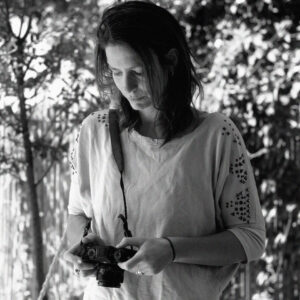
Adi Segal (b.1985) is a freelance documentary photographer dedicated to telling stories of communities living in the margins of society, both geographically and mentally, as well as of social, political, and ecological issues. She has a special interest in long-term documentary projects and uses photography as a medium to create intimate encounters between people and ideas. Two years of obligatory service as a photographer for the Israel Defence Force spokesperson unit, covering the disengagement from the Gaza strip, demonstrations against the barrier wall and terror attacks became a life changing experience for her, understanding she must address the Palestinian-Jewish conflict in her work. For over a decade she has been living in a small ecological community, documenting the day to day lives and close relationships within her own family and the members of her community, as well as other off-grid stories from the northern Israeli suburbs. Her work has been presented in solo and group exhibitions in museums and galleries across Israel and published in magazines such as “Haaretz”, “Reformatorisch Dagblad”, “Nederlands Dagblad”, “Hamburger eyes” and “Brigitte”.
HONEY AND HOPE
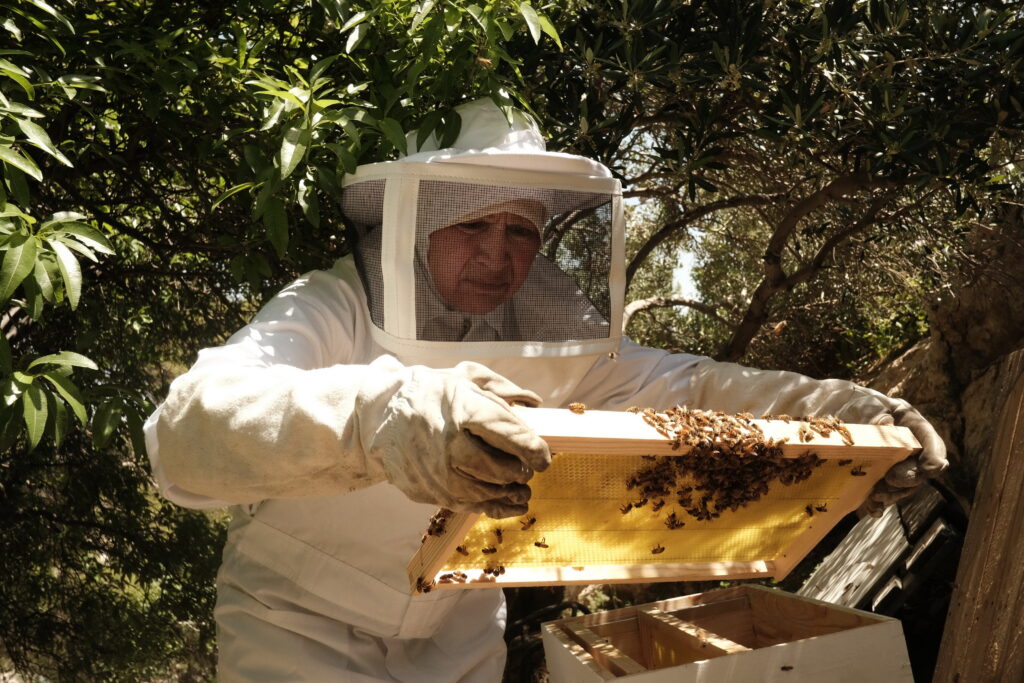
Sinsila is a grassroots movement and the world’s first women’s bee cooperative whose aim is to empower, support and create a source of income for the women of East Jerusalem who endure an 80% unemployment rate. This is a story about women receiving training to develop an uncommon profession they can take up without leaving home – beekeeping. 120 women have already finished Sinsila’s training course and joined the growing collective of women who place hives on their rooftops, gardens and terraces. The project aims to provide an in-depth view of the women’s relationship with their bees throughout the different seasons. The regular supervision provided by Sinsila guides the women in their homes, and supports in their honey production. The project shows how slowly, with a lot of hard work and dedication, a new community is being built, which is bringing a sense of freedom and renewal to East Jerusalem.
ALIXANDRA FAZZINA (BRITISH / IRISH)
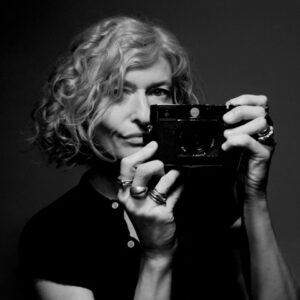
A photographer and author, Alixandra Fazzina’s work focuses on under-reported conflicts and the often forgotten humanitarian consequences of war, reframing stories for our time. Known for her in-depth investigative reporting, Alixandra is recognised for her compassionate and empathetic approach towards the human condition, often spending prolonged periods in the countries and regions where she works. Studying Fine Art, Alixandra Fazzina began her career as a war artist, going on to work as a frontline news photographer for the press. She has since worked independently on in-depth investigative projects with a focus on refugees, human trafficking and the devastating human consequences of war. A co-owner and member of NOOR Images, her work has been published in books and across international titles and her photographs exhibited in museums and galleries worldwide.
YEMEN CONTRAFLOW
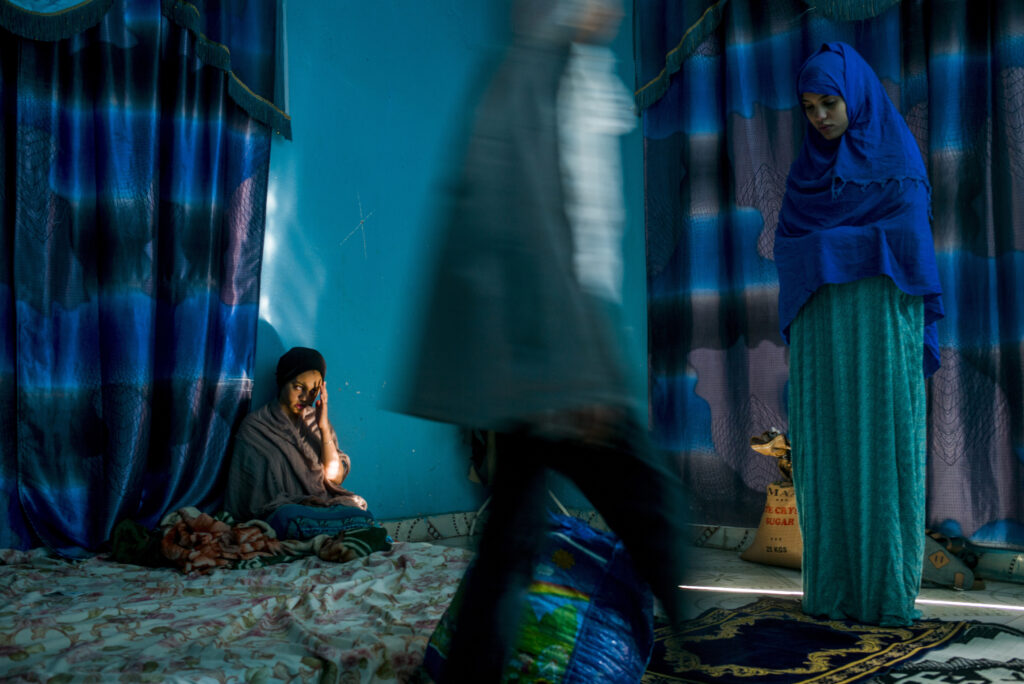
On the shores of the Gulf of Aden, Alixandra’s new work investigates shifting patterns of displacement in the shadow of war in Yemen. Evolving to become a treacherous human shuffle, the new routes have become the most travelled and most deadly in the world. Under spells cast by a mythological smuggler and against the grain of thousands of refugees escaping war, over the past few years, more people travelled to The Arabian Peninsula in search of a better life than to Europe. Suffering violence, torture and abuse, the systematic commodification of human lives through trafficking has become a vehicle for the funding of seemingly perpetual conflict. Weaving its way between frontlines, this untold story sets out to trace the two-way stream of displacement between continents. Seeking to reframe traditional refugee narratives and work as a piece of advocacy, the project ultimately aims to challenge where fears of migration really stem from.
ANA MARIA ARÉVALO GOSEN (VENEZUELAN)
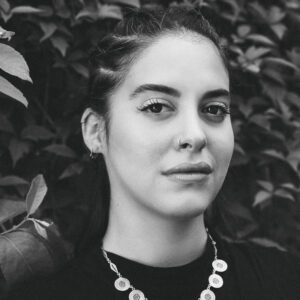
Ana María Arévalo Gosen (1988), born in Caracas, moved to France in 2009 to study Political Science and discovered her passion for photography. Now based in Madrid, she works as a freelance visual storyteller, focusing on women’s rights, social and environmental issues. A National Geographic Explorer and member of Ayün Fotógrafas, she combines research and intimate stories to create emotional, honest narratives for social change. Her project “The Meaning of Life” documents her husband’s battle with testicular cancer, raising awareness and funds for male cancer research. “Eternal Days,” which explores women’s conditions in Latin American prisons, won multiple awards, including the Leica Oskar Barnack and Camille Lepage awards. Ana also received the World Peace Photo Award in 2021. Her work has been featured in international media and exhibited globally, including Fotografiska New York, Ernst-Leitz Museum, and Leica Gallery in Madrid, Miami, Taipei, and London.
GRANDMOTHERS AT 30
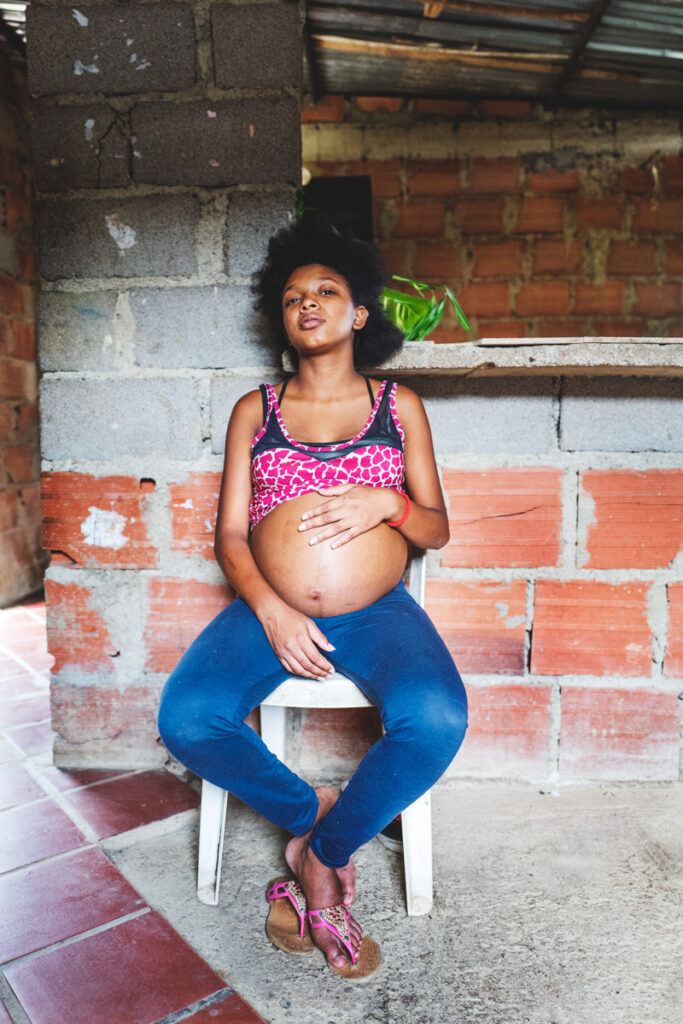
Venezuela faces the highest rate of teenage pregnancy in the region, exacerbated by the 2015 economic collapse and mass parental migration. Young mothers often lack family support, education, and resources. Despite these challenges, positive solutions have emerged, empowering young mothers and addressing the issue’s cardinal causes. Various NGOs, such as the Niña Madre Foundation, provide young parents with tools for responsible parenthood and sustainable living. Collaborating with organisations and doctors, Ana documents the initiatives to prevent repeat teenage pregnancies and educate future generations on sexual and reproductive health. As a Venezuelan, she is deeply motivated to document the solutions implemented by these organisations. By capturing their positive impact, she hopes to raise awareness, foster safer environments for sexual and reproductive education, and contribute to a brighter future for Venezuela’s next generation.
CAMILLE MICHEL (FRENCH)

Camille Michel (b.1988) is a French photographer who studied Arts in Paris VIII and photography at the National School of Photography in Arles. Camille has been represented by the Hans Lucas studio since 2015 and has been part of the photographic observatory of the poles since 2016. Concerned about the environment, the photographer specialises in ecology and polar areas. She has produced numerous reports in the Arctic and has worked in Greenland for ten years. Camille documents the daily life of small communities, the problems they encounter and their challenges of adapting to the modern world – climate change, pollution, exploitation of resources. Camille exhibits regularly in France (Discovery Palace, Glénat foundation, Quai Branly museum, Arles photography festival, Agnès B gallery) and also abroad (Museo Civico Ala ponzone Cremona, Arts and Crafts Museum Belo Horizonte, Universal exhibition of Milan, Somerset House London, Museum of Art Pudong Shanghai). Her work has been published in many French and international media (Le Monde, Liberation, La Croix, New York Times, Die Zeit, Der Spiegel, Wired). She has been awarded several prestigious prizes, in particular the Liberation prize, the François Schneider foundation prize and in 2022 the BnF National Library of France prize.
INUGHUIT: SENTINELS OF THE ARCTIC

Camille’s project is a long-term report on the Inughuit, the world’s northernmost indigenous people living in northern Greenland, comprising of 700 individuals living from fishing and traditional hunting. Far from stereotypes, Greenland has evolved, adapted and modernised but retains a responsible, traditional way of life close to nature. Former animists, Greenlanders have always shared a strong connection with their environment. They have inherited precious ecological knowledge and are the sentinels of the earth and the guardians of the glaciers, particularly poignant as the Arctic people are the first to be affected by climate change. The project shows a model of an ecological society as a direct counter to our consumer societies which create destruction of the planet but also advocates that modernity and responsibility are not mutually exclusive.
ELISA MARIOTTI (ITALIAN)
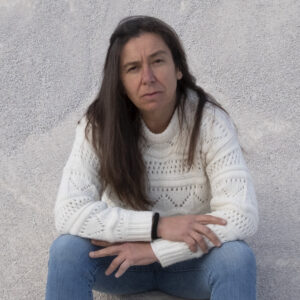
Driven by principles that protect human rights, Elisa Mariotti focuses on documentary photography and social issues. Her works are long-term projects in the attempt to grasp better the complexity of the reality. Since 2019 she started a photo laboratory with children in a protected community. Part of the work was published in a scientific journal. Her first photographic book “From The Same Land” was published in 2020. “Work Target” was about Palestinian children arrested by Israeli militias in the West Bank territories. To date she is working on “A Letter From Home”, a project about the rehabilitation, education and personal development of drug addicts in an Italian drug recovery residential community. “Yes We Do” is an ongoing project about the economic gender gap. She has been a finalist and prize-winner of various competitions.
A LETTER FROM HOME
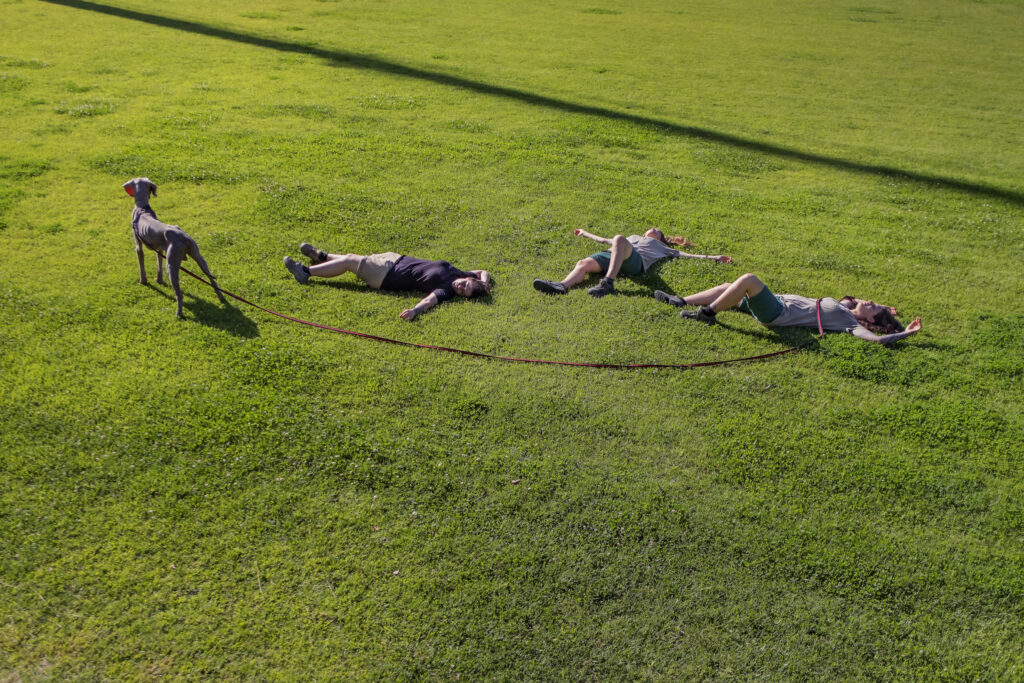
According to the United Nations’ World Drug Report 2021: “Drug use killed almost half a million people in 2019”. The devastating effects of drug use have not been stemmed since last century. San Patrignano is a long-term drug recovery residential community in Italy. 26,000 people have been hosted since 1978, with 4,000 years of prison converted into rehabilitation programmes. These photos are part of an ongoing project launched in 2021 on the rehabilitation and personal development of residents who work in the kennels, one of the activity areas of the community. Here, sharing emotions is the key. For the first year, letters represent the only contact with the outside. There are often human relations to be reconstructed or at least to be understood. Writing a letter means finding the courage to accept one’s own and others’ weaknesses. It is a hard, deep, and long fight with an unpredictable ending. But it’s worth it. Always.
EMMA FRANCIS (BRITISH / AMERICAN)
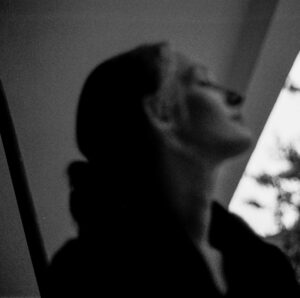
Emma Francis is a freelance photographer and writer based in Paris, who for the last six years has been photographing the impact of conflict. She aims for her storytelling to amplify marginalized voices and support direct action for their causes. Her projects have focused principally on Nigeria, Iraq and Afghanistan. Her photography is known for capturing the quiet moments in conflicts, as opposed to the violence and gore often associated with war photography. She has worked extensively with organisations like EMERGENCY, the Legacy of War Foundation, and iFollowTheMoney to highlight projects working to better society in the face of conflict. Her work has been exhibited in Sharjah, UAE at the Xposure festival and was included in Artpil’s most recent list of 30 women photographers under 30.
OPERATION SAFE CORRIDOR
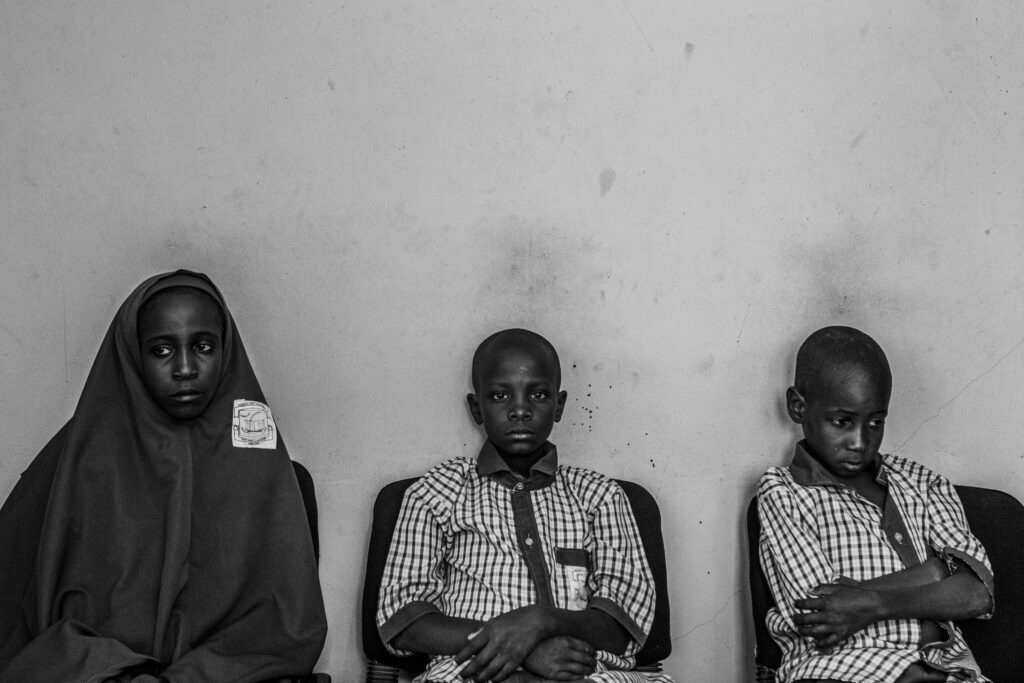
Founded in 2016 by President Muhammadu Buhari ‘Operation Safe Corridor’ (OSC) is an initiative located in Gombe State, Nigeria. This program rehabilitates surrendered Boko Haram militants, with the aim to de-radicalise them and reintegrate them into society. But little is known about what takes place within the centre and if the results help the communities impacted by the violence. Can a programme transform a militant of an extremist group into a contributing member of civil society? Documenting the effects of OSC and Boko Haram is critical for expanding knowledge of this programme globally and locally. Coverage of conflict is simple, but the complex and difficult process of recovery from conflict is rarely seen. This project will result in a body of work that is informative for local communities as well as advocating for their concerns; and highlight systemic issues for a broader discussion on combating extremism.
FATMA ÇELIK (KURDISH)
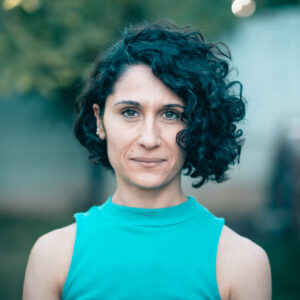
Fatma (b.1987) graduated from İnönü University’s Department of Psychological Counselling and Guidance. Since 2009, she’s been working as a counsellor at schools in Diyarbakır. She also volunteers with children and women through civil society organisations. She joined NarPhotos Collective in 2012 and was a member until 2021 when the collective ended. Her photography and video work focuses on migration, identity, memory, ecology, and gender. She has attended several workshops and artistic production programmes. Her works have been exhibited widely at home and abroad and shown at festivals. Recently she attended EurasiaDoc Amed Script Writing Workshop and worked on a medium-length film about Özgür Gündem Newspaper. She lives and works in Diyarbakır. She is an affiliate of PLATFORM by GAPO.
BACK TO NATURE
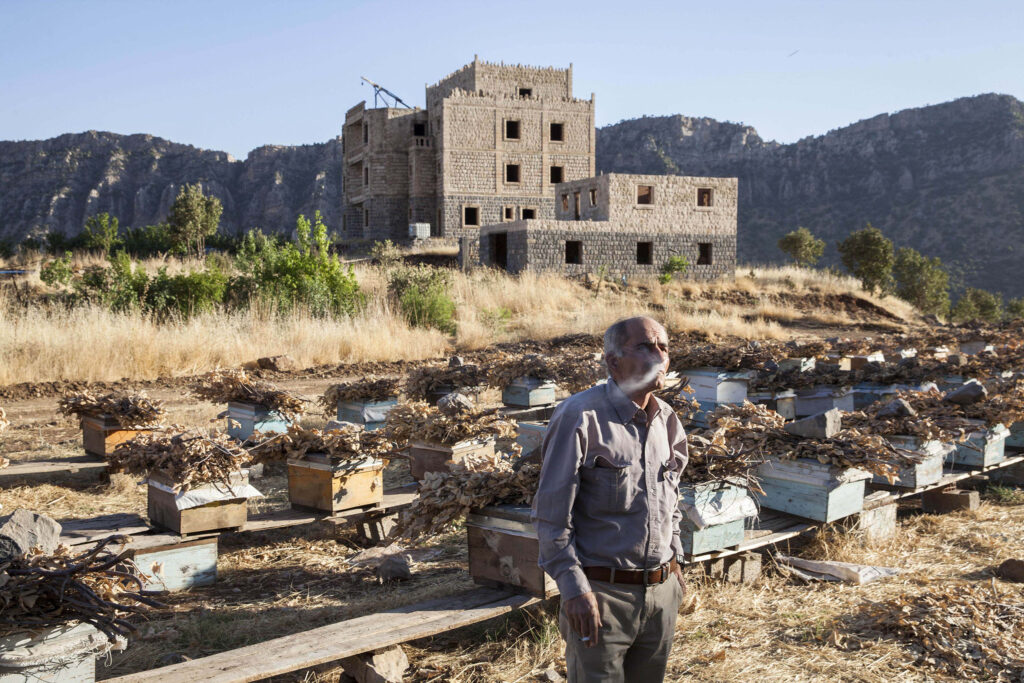
‘Back to Nature’ focuses on the stories of Kurdish, Alevi, Chaldean and Assyrians who were forced to migrate from their villages in Turkey in the 90s and now return to revitalise life by farming with local seeds, raising livestock, reforesting burnt down areas and beekeeping. It includes people who cannot return to their villages but are trying to build a new living space in Europe. It is precisely at such a moment and in such a system that ‘Back to Nature’ is created as an effort to understand and tell the new spaces of struggle rooted in the stories of people who return to nature in an effort to revive their language, culture and existence carries hope and resilience not only for themselves but for future generations. This work seeks to instil courage and hope in those who intend to take action.
JULIA GUNTHER (GERMAN)
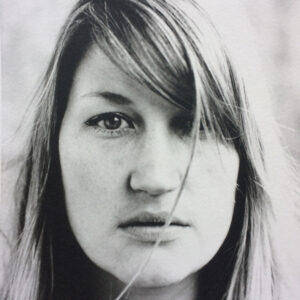
Born in Berlin, Germany, Julia Gunther is a freelance photojournalist based in Amsterdam, NL. Julia’s work focusses primarily on social justice and explores themes of representation, gender, visual identity, and social activism, specifically, the role of women in society and more often women in sub-Saharan Africa society. Her photography has won awards at the Wellcome Photography Prize, The New York Photo Festival, and the LensCulture Exposure Awards, has been shown as part of the Taylor Wessing Portrait Prize exhibition, and shortlisted for the Gomma Grant, Rabo Photographic Portrait Prize, Felix Schoeller Photography Award and WorldPhoto Award.
CHEDINO
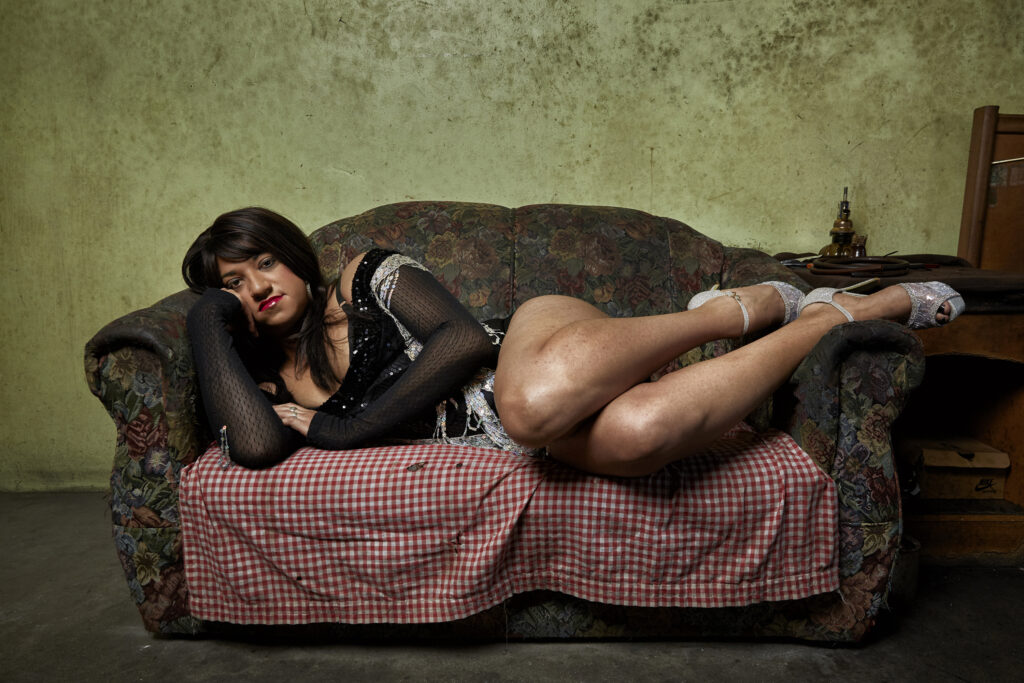
Participating in the Miss Trans Global pageant holds great significance for Chedino. The winners become spokespersons who travel to other countries to promote the pageant’s inclusive LGBTQ message. They also collaborate closely with activist organisations such as TransValid and TransBeauty Magazine. Through the images captured and reporting, I hope to draw media attention to this pageant and others like it. As demonstrated by my previous projects, amplifying individual voices helps translate significant themes into relatable stories that generate empathy and establish personal connections with readers. The attention these women receive through local and international awareness elevates their status within their communities and empowers them to continue their activism. Julia believes that the bond over 11 years documenting Chedino means that she can tell her story from a uniquely personal angle.
LEXI PARRA (VENEZUELAN / AMERICAN)
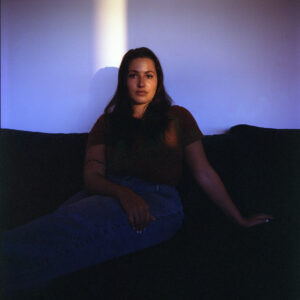
Lexi Parra is a Venezuelan-American photographer and community educator based between Caracas and New York. Her work focuses on youth culture, the personal effects of inequality and violence, and themes of resilience. Parra has worked with The Washington Post, The New York Times, The New Yorker and others. She is a member of Women Photograph and Diversify Photo. She has received a Diversify x Getty Inclusion Grant (2022) and is a Pulitzer Center Reporting Grantee (2021). In Caracas, she runs “Project MiRA” a photo education initiative for young women that has been funded by Canon and the Davis Peace Prize. Both her initiative and personal work have been exhibited worldwide. Her degree is in Photography and Human Rights, from Bard College.
WHAT REMAINS
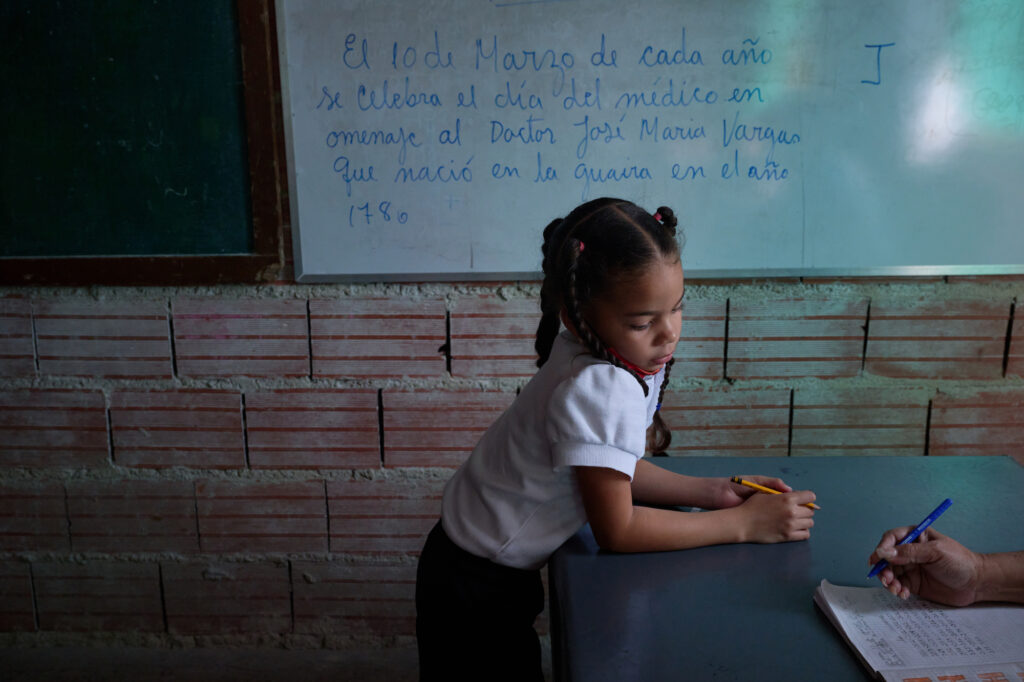
‘What Remains’ focuses on the aftermath of violence, inflicted by both State and gang forces. Venezuela’s government has created a lethal police squad that terrorises the most under-resourced neighbourhoods. These communities are terrified to speak out and are wrongly characterised by notorious cycles of violence, normalising this unofficial war. This project not only brings to the forefront peoples’ testimonies, evidence of the egregious human rights abuses committed by police, but visually challenges stereotypical depictions of the ‘barrio’ in Latin America. Lexi’s work hones in on the emotional toll, placing first the person – dignified, a victim of the State but not powerless. The ethos of her approach, visuals and intent for publication of this work will have a positive impact as it documents an ongoing, under-reported epidemic of violence, while also being a source of healing in collaboration with those who share their story.
SARA GIULIANI (ITALIAN)
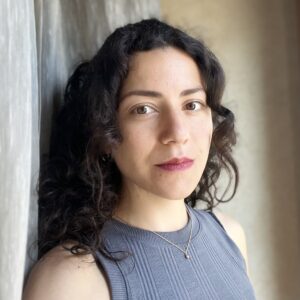
Sara is a visual journalist and anthropologist based in Rome, Italy. After several experiences as a freelance news contributor to different media outlets and magazines, she decided to study photography as a medium to document complex stories. In 2022, she pursued a masters in photojournalism at the High Institute of Photography of Rome (ISFCI Academy). Her work has been featured in different collective exhibits and volumes, and has been noted in international awards, including the International Photography Award 2022 where she won an honourable mention in the “deeper perspective” category. Sara participated in the Canon Student Development Programme 2022, and was one of the 15 Italian photographers under 30 selected by Magnum Photos and Armani Silos to attend a free workshop with Cristina De Middle in Milan, Italy. As a photographer, she wants to bring to light stories that do not seem to find a legitimate place in the mainstream narration, while documenting social and environmental changes.
BROKEN PARADISE
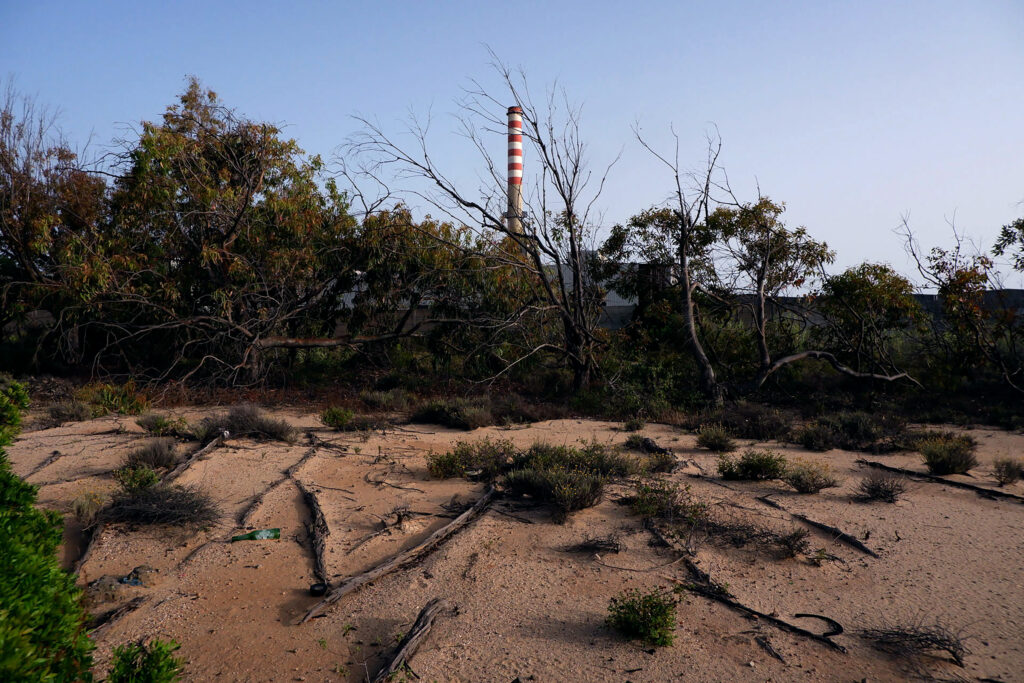
This work documents a silent environmental crisis in the heart of Sardinia, a popular tourist summer destination in the Mediterranean Sea. Ancient land of shepherds and miners, the southwest part of the island is now one of the most contaminated areas in Italy. A ban on local agricultural products, open-air landfills of hazardous waste, soil and groundwater contamination still characterise the area today after decades of disputes. The Italian government has marked the region as a Site of National Concern since 2001 but much still needs to be done to heal the territory and its inhabitants. From waste to quantum physics, local coal mines have recently started to implement new initiatives, while the heavy metal industry has presented the first collective plan to decontaminate the groundwater from dangerous metals. Local communities are mobilising to stop the construction project of a maxi gas carrier on the port quay of Portoscuso at less than 800 meters from the houses and the industry plant. All signals that finally something is moving to cease any further abuse against people and nature in defence of a broken paradise.
SVET JACQUELINE (AMERICAN / RUSSIAN)
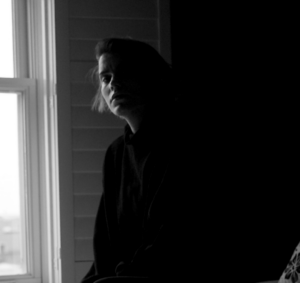
Svet Jacqueline is a documentary photographer raised in Baltimore, Maryland. She earned a Bachelor of Science in Photography from the S.I. Newhouse School of Public Communications at Syracuse University. As a child adopted from Kirov, Russia at a young age, her work focuses on the impact of trauma and displacement experienced by children in conflict zones. She has been working in Ukraine since the start of the full-scale invasion on February 24, 2022, documenting a war-torn country through the eyes of Ukrainian youth. She is a photo essayist in the books, ‘Relentless Courage: Ukraine And The World At War’ and ‘Ukraine: A War Crime’ published by Fotoevidence. All About Photo named her one of the best modern photographers in their September issue and CNN featured her as one of 12 women and nonbinary photographers capturing 2022.
UNOCCUPIED PLAYGROUNDS
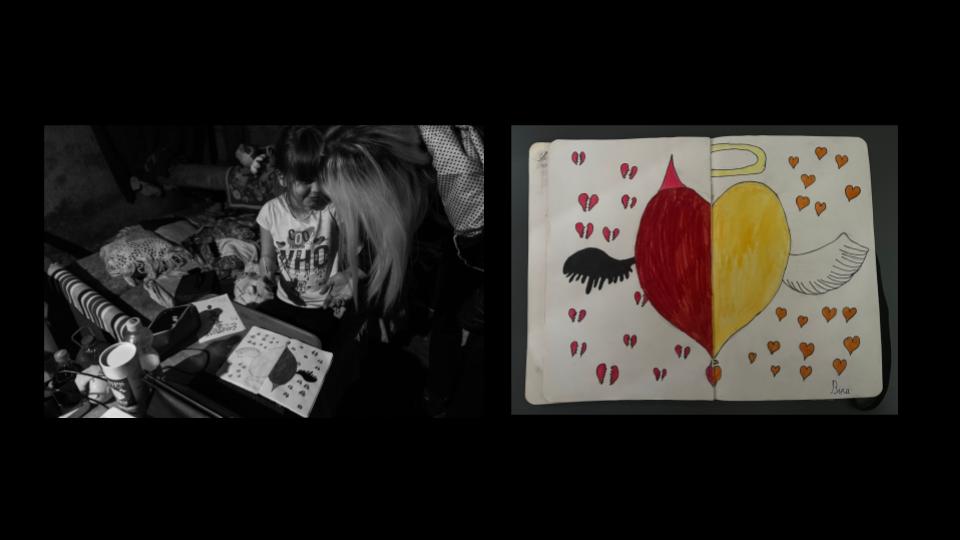
‘Unoccupied Playgrounds’ promotes awareness of the obstacles and resilience of Ukrainian youth as they reclaim their childhoods in a war zone. An aftermath story is developing in real-time as the war continues. As they grow older, some of them will be drafted into the war as young adults. Some will help raise the siblings that their parents died to protect, and some will never return to their childhood homes or cities again. The beautiful thing about children is the joy they find in the most unlikely circumstances, embodying the Ukrainian spirit in its purest form. They run, play, and laugh in the face of the evil that has become their reality. Sharing the experience of children who have been living in bunkers and otherwise affected by the war will help fundraise for rebuilding schools and recreational centres, and provide necessary supplies and comforts that help preserve the childhoods that have been destroyed.
TANIYA SARKAR (INDIAN)

Taniya Sarkar (b.1992, Kolkata, West Bengal, India) studied journalism & mass communication at Maharaja Manindra Chandra College, Calcutta University, and completed her MA in journalism & mass communication at Calcutta University, in 2015. Her works have been exhibited at Indian Photo Festival in 2020 and Städtische Galerie Nordhorn, Germany as part of the exhibition ‘CLOSE CONTACT’ in 2021-2022.She is a grant recipient of the W. Eugene Smith Memorial Fund (Student grant), Inge Morath Award 2021 (Finalist), Magnum Foundation 2021, Generator Grant 2021, Experimenter Grant 2021, Social Documentary Grant, Murthy Nayak Foundation and SACAC in 2021. International Center of Photography (ICP) New York, awarded her the prestigious Mary Ellen Mark Memorial Scholarship to join the One-Year Certificate programme in Documentary Practice and Visual Journalism (2021-2022).
NOTHING LEFT TO CALL HOME
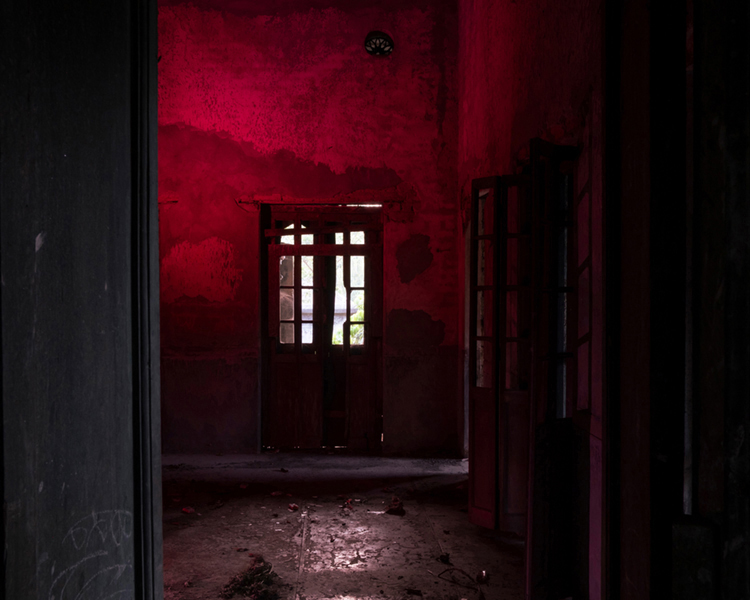
Unearthing women’s narratives on the multi-faceted and complex communal events since India’s partition and independence in 1947, ‘Nothing Left to Call Home’ is a visual research project centred around the Indian states of West Bengal and Bangladesh that broadly investigates how these events have historically manifested as patriarchal violence against women and widely explores the intertwined links between religious intolerance since partition, institutionalised terror for clear electoral purposes in recent years, and pre-established local networks of civic engagement by critically analysing the centuries-old coexistence between Hindus and Muslims. Since Taniya grew up in West Bengal, she has heard stories and read about communal violence, rarely featuring the voices of women who have endured partition’s pain. On the other hand, people have forgotten the initiative of those women who made strong resistance. With the narratives of women who have been forgotten in Bengal’s communal violence, she intends to fill the gaps.
VICTORINE ALISSE (FRENCH)
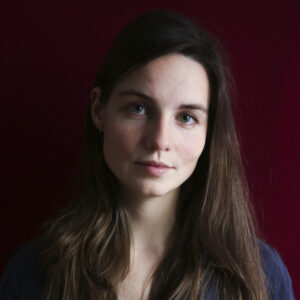
Victorine Alisse is a french photojournalist and documentary photographer, and member of the Collective Hors Format. As the granddaughter of a farmer, she has worked extensively on transformations within the agricultural world. For two years, she explored the disappearance of the peasant world in France with her series ‘We All Had a Peasant in the Family’. She continues to interrogate the faces of agriculture in Israel and in Palestine. She is also interested in new narrative forms by combining text and images. Victorine collaborates with media such as Le Monde and Libération and with NGOs. Her work is exhibited in France and abroad. She is co-winner of the Caritas Photo Social Prize in 2021 with JS Saia. She has been selected by Artpil in 2022 for the 30 Under 30 Women Photographers.
WE WILL STAY HERE AS LONG AS THERE ARE THYME AND OLIVES
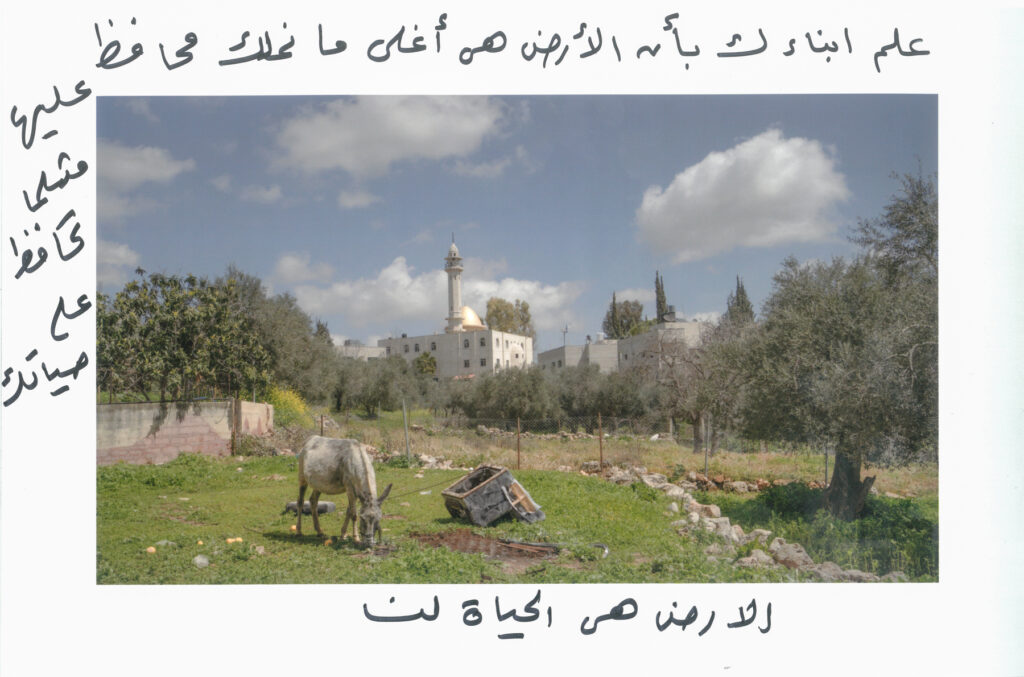
Far from the images of violence usually associated with this region, Victorine hopes to use this work to show the resilience of the farmers of Wadi Fukin who, despite an increasingly precarious situation, continue to resist silently. Because without land, there is no future. Victorine’s goal is to illustrate the various solutions that Palestinian farmers are undertaking to protect their land, by requesting them to handwrite personal testimonies onto photographs of their choosing. Some of them chose one or many pictures, and they write their feelings on it about their connection to the land. It’s a way of giving them a voice and involving them in the photographic process, and allows them to express a feeling or a memory.
WENDY CARRIG (BRITISH / IRISH)
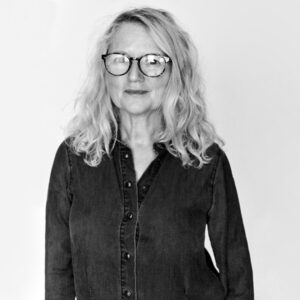
Wendy Carrig is an Anglo/Irish photographer living and working in London. Her focus is mainly on women’s stories. She began her career documenting protests at the Greenham Common Women’s Peace Camp in the mid-1980s, whilst still a photography student, and has gone on to forge a career as a freelance photographer. Creating pictures with purpose she works across multi-genres often fusing documentary and fashion, portraiture and still-life within her narratives. She was a participating artist in the #209women takeover of Parliament, has been the featured artist of PhotoLondon magazine, and is a founding member of f22* women photographers, created to challenge gender disparity within the photographic industry. Her Greenham Common portfolio has now been recognised with publications and exhibitions, at home and abroad. Wendy Carrig is a photography mentor and lectures at Oxford Brookes University.
CARRY GREENHAM HOME
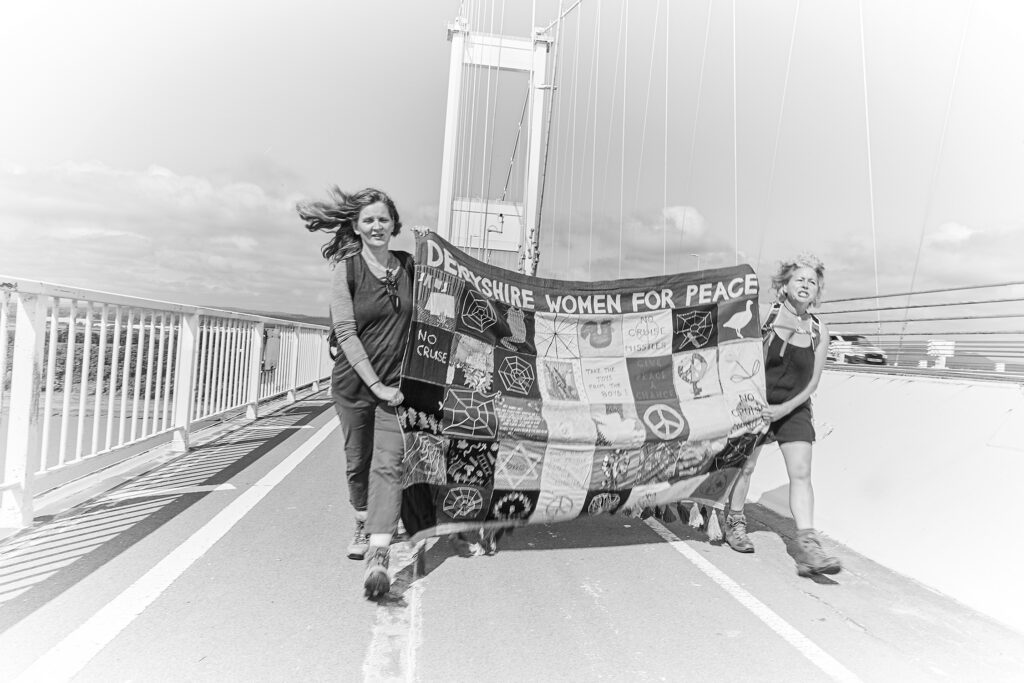
The Greenham Common Women’s Peace Camp was the largest female-led protest since suffrage, leading to an international ban of Cruise missiles. But this extraordinary event has largely been written out of history. To honour their remarkable achievements activist group ‘Greenham Women Everywhere’ recreated the protest march that started the Peace Camp, by walking 110 miles from Cardiff to the Common. For nine days polluted roads and thunderous traffic were eclipsed by camaraderie and song. Original Greenham Women sharing inspiring and sometimes terrifying stories of life at camp with a new generation of impassioned activists. Their mutual aim to highlight the urgent crises of climate emergency, nuclear weapons escalation, violence against women, extreme hunger, and social inequality could not be more timely. The Greenham Women’s legacy shows how working together – under the banners of truth, kindness, and peace – a diverse and united group of women can make a difference to the world.
THANK YOU
Huge congratulations to this impressive list of shortlisted applicants. The quality of applications we receive for this niche Award is outstanding. It is heartening to know how many international female documentary photographers wish to focus on solutions and create positive impact with their work.
It feels particularly emotional this year as Marilyn Stafford died in January but we will continue to run this Award as part of her enduring legacy.
Our deepest gratitude goes to our friends at Nikon for supporting this Award year on year.
The Marilyn Stafford FotoReportage Award is granted to a professional female photographer towards the completion of a compelling and cohesive documentary photo essay, which addresses an important social, environmental, economic or cultural issue, whether local or global and which, in part, aims to showcase solutions / create positive impact for any issues it raises. The overall winner is awarded a grant of £2,500.

